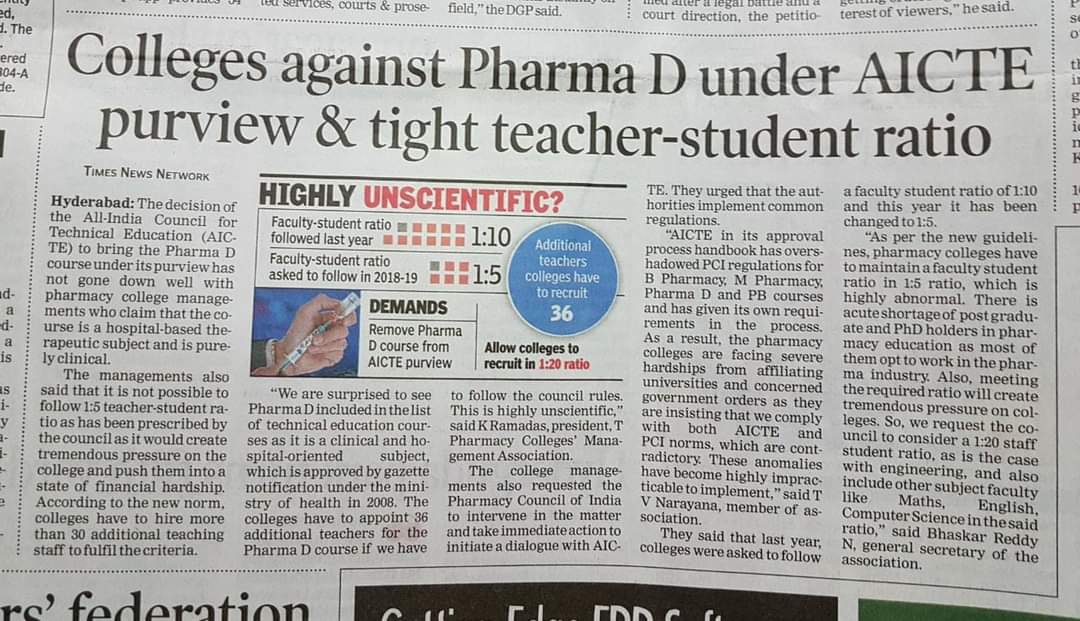PCI(Pharmacy Council Of India) and AICTE(All India Council for technical education) are the governing bodies in the pharmacy education , keeping in mind the compounding and dispensing as well as the technical aspects involved in Pharmaceutical Engineering .
Now with the advent of Pharm D course in pharmacy, which is clinically oriented 6 years course in pharmacy and the syllabus is designed such as first 3 years are same as B.Pharm ( compounding and dispensing oriented) and next 2 years are same as MD Pharmacology (medically and clinically oriented) and 1 year of internship in an attached (minimum- 300 beded) hospital , one may expect MCI (medical council of India) to get into the thick of the things/matters.
As it requires an affiliation with a hospital( minimum 300 beded), to get approval for an pharmaceutical institute from PCI to conduct the course , one must expect MCI(medical council of India) also to get involved as a regulatory and governing body.
PCI governs courses like : D.Pharm
B.Pharm
Pharm D and Pharm D(PB)
AICTE governs courses like : B.Pharm( jointly with PCI)
M.Pharm
Now one must expect AICTE,PCI and MCI may jointly govern : Pharm D and Pharm D(PB)
But no, its not a rational thinking on my part. MCI will get involve only when the course is a medical one or may be when the professional doctor is dealing with a body part.
So, its fair enough that MCI is not involved into these matters.
Now with the advent of Pharm D course in pharmacy, which is clinically oriented 6 years course in pharmacy and the syllabus is designed such as first 3 years are same as B.Pharm ( compounding and dispensing oriented) and next 2 years are same as MD Pharmacology (medically and clinically oriented) and 1 year of internship in an attached (minimum- 300 beded) hospital , one may expect MCI (medical council of India) to get into the thick of the things/matters.
As it requires an affiliation with a hospital( minimum 300 beded), to get approval for an pharmaceutical institute from PCI to conduct the course , one must expect MCI(medical council of India) also to get involved as a regulatory and governing body.
PCI governs courses like : D.Pharm
B.Pharm
Pharm D and Pharm D(PB)
AICTE governs courses like : B.Pharm( jointly with PCI)
M.Pharm
Now one must expect AICTE,PCI and MCI may jointly govern : Pharm D and Pharm D(PB)
But no, its not a rational thinking on my part. MCI will get involve only when the course is a medical one or may be when the professional doctor is dealing with a body part.
So, its fair enough that MCI is not involved into these matters.
